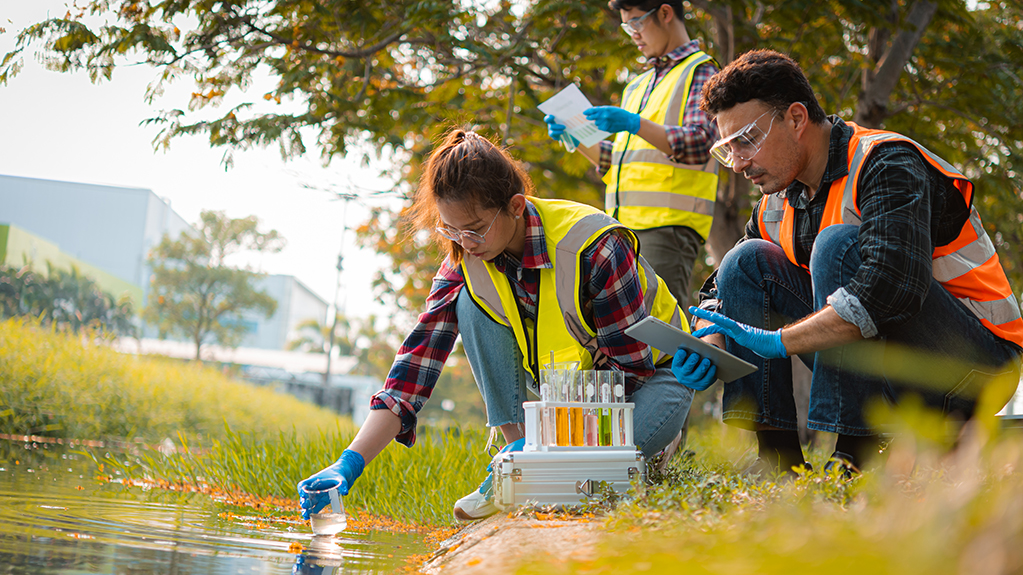Environmental and Ecological Engineering
Launch your future with a modern take on environmental engineering. Blend sustainability, innovation and systems thinking to solve complex challenges — focusing on resilient designs and the deep connections between people, nature and technology.

Why Purdue?
Applying
Applying to Engineering in West Lafayette
To study environmental and ecological engineering in West Lafayette, you will apply to the first-year engineering program. All engineering students in West Lafayette build a foundation for success by completing core first-year engineering curriculum before transitioning to a specialty major in the second year. Core curriculum includes courses in math, chemistry, physics, computer programming and communication skills, as well as introductory engineering coursework that explores career options to help you identify which specialty major is the right fit.
The priority application deadline for first-year engineering is Nov. 1. Applications received after Nov. 1 for this competitive major will be evaluated based on available space.
Our graduates are equipped to protect both human and environmental health, tackling global challenges from air and water quality to resource recovery and industrial sustainability with careers like:
- Air quality engineer
- Climate change analyst
- Ecosystem and habitat restoration engineer
- Energy and resource recovery engineer
- Environmental compliance specialist
- Environmental engineer
- Urban planner
With a focus on service-learning, internships and co-ops, research and study abroad, our students gain important hands-on experiences that prepare them for careers with top companies such as:
- Drinking water process engineer, Black & Veatch
- Plant engineering manager, Citizens Energy Group
- Environmental designer, Wildlands Engineering, Inc.
- Global Zero Waste program manager, General Motors
- Environmental engineer, Indiana Department of Environmental Management
- Project manager, Invenergy
- GHG technology innovation engineer, Procter & Gamble
You should pursue the most rigorous high school curriculum available to you. Succeeding in challenging courses will make you a stronger candidate for Purdue’s competitive admission process and better prepare you for college success.
Minimum high school coursework (many applicants exceed these minimums):
- Math – 4 years
- English – 4 years
- Lab science – 3 years
- Social studies – 3 years
- World language – 2 years
In addition to meeting or exceeding the minimum high school course requirements, our holistic review process places particular emphasis on key academic courses such as:
- Calculus (if available at high school)
- Four years of laboratory sciences, including:
- Biology
- Chemistry (expected)
- Physics (if available at high school)
Many of our students report learning about environmental career opportunities and developing a passion for the topic in their AP environmental science course. If available at your high school, you may benefit from taking this course.
Connect
College of Engineering
Explore nearly 20 majors in one of the best engineering schools in the country for academics and career preparation.
Contact
Office of Future Engineers
(765) 494-3975
future-engineers@purdue.edu
Visit
Experience for yourself all that Purdue has to offer with opportunities to explore in-person or virtually.
Apply
Ready to take the next step? Apply to begin your journey at Purdue in engineering.
Transfer to Environmental and Ecological Engineering
Purdue admits to individual majors. Transfer students must meet Purdue’s overall transfer criteria, as well as any major-specific requirements. Before you apply, check the closed programs page to confirm this major is open to transfer students. If it is, refer to the information below for major-specific transfer criteria.
- Minimum 3.0 GPA
- For detailed admissions requirements to transfer into any of Purdue’s engineering majors, review our engineering transfer criteria.












